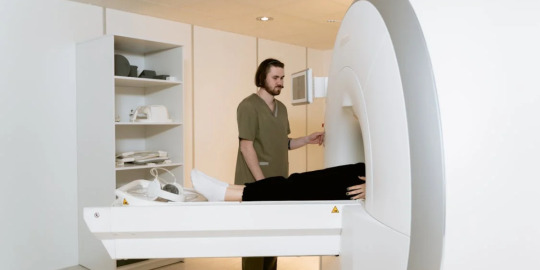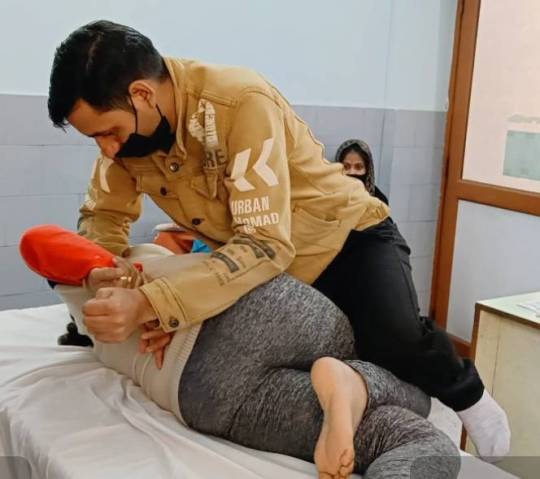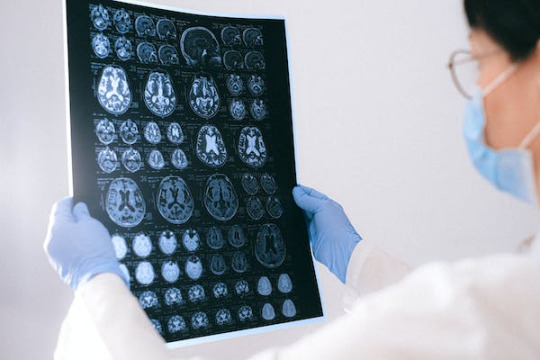#Brainfitness
Explore tagged Tumblr posts
Text

Games to Make Your Brain Sharper! 🧠
Just like your body, your brain needs exercise too! 🏋️♀️🧩 Here are some fun and effective games that can help boost your memory, focus, and mental agility:
🎮 Puzzle Games (like Sudoku or crosswords) – Improve problem-solving skills and memory. 🃏 Card Games (like Solitaire or Poker) – Boost concentration and strategy. 🧩 Jigsaw Puzzles – Strengthen visual-spatial reasoning and patience. 🎯 Brain Training Apps (like Lumosity or Peak) – Enhance memory, attention, and cognitive skills. 📚 Reading & Word Games – Expand vocabulary and improve focus. 🎲 Strategy Games (like Chess or Go) – Sharpen decision-making and critical thinking.
Play daily to keep your mind in top shape! SVASTHA EMERGENCY AND MULTI SPECIALITY HOSPITAL CONTACT: 9044337799 MANDAPET
0 notes
Text

🚀 Phil Chapel: Leadership Redefined 🌟
From navigating icy Arctic waters 🧊 to navigating boardrooms worldwide 🌍, Phil Chapel is a visionary leader inspiring growth, trust, and innovation. 💡 As the founder of Blue Lane Factory, Phil combines brain fitness 🧠, leadership tools 🤝, and actionable insights to empower professionals and organizations to thrive in a VUCA world. 🌪️
📚 Author of North Star Leadership, with a second book How to Become Legendary coming in 2025, Phil is on a mission to shape the next generation of leaders! 🌱
👉 Connect with Phil for tips on resilience, sustainable growth, and impactful leadership. 💬
For more information:- https://www.allaroundworlds.com/phil-chapel-leadership-journey/
#LeadershipGoals#BrainFitness#InnovationMatters#EmpowermentJourney#BlueLaneFactory#LeadershipDevelopment#FutureLeaders
0 notes
Text

🔬 High-Intensity Interval Training (HIIT) and Brain Health: Mechanisms and Benefits 🧠 --- A recently published review article titled "HIITing the brain with exercise: mechanisms, consequences and practical recommendations" in The Journal of Physiology explores the profound impact of High-Intensity Interval Training (HIIT) on brain health. This comprehensive review elucidates the underlying mechanisms and practical applications of HIIT, highlighting its potential cognitive benefits. --- Key Highlights: Neurovascular Function: HIIT significantly enhances neurovascular function by improving blood flow and nutrient delivery to the brain, which is crucial for maintaining cognitive function and overall brain health. --- Neuroprotective Factors: The training method increases the production of neuroprotective factors, such as Brain-Derived Neurotrophic Factor (BDNF). BDNF supports the growth, survival, and differentiation of neurons, playing a critical role in brain plasticity and cognitive function. --- Cognitive Benefits: Regular HIIT sessions are associated with improvements in memory, executive function, and processing speed. These cognitive enhancements are particularly beneficial for aging populations and individuals at risk of neurodegenerative diseases. --- Practical Recommendations: The review provides detailed guidelines for safely and effectively incorporating HIIT into fitness routines. It emphasizes the importance of tailoring programs to individual fitness levels and health conditions to maximize benefits and minimize risks. -- Future Research Directions: The article suggests various areas for future research to further explore the neurobiological mechanisms behind HIIT's cognitive benefits. It highlights the need to optimize training protocols for different populations to achieve the best outcomes. --- Importance of the Study: The findings underscore the potential of HIIT as a non-pharmacological intervention to enhance cognitive function and prevent cognitive decline. Incorporating HIIT into regular exercise routines can significantly contribute to brain health, making it an invaluable tool for both healthcare professionals and fitness enthusiasts. --- 1. Calverley, T.A., Ogoh, S., Marley, C.J., Steggall, M., Marchi, N., Brassard, P., Lucas, S.J.E., Cotter, J.D., Roig, M., Ainslie, P.N., Wisløff, U. and Bailey, D.M. (2020), HIITing the brain with exercise: mechanisms, consequences and practical recommendations. J Physiol, 598: 2513-2530. doi: 10.1113/JP275021. Epub 2020 Jun 1. PMID: 32347544.
#HIIT#BrainHealth#CognitiveFunction#Neuroprotection#FitnessScience#ExercisePhysiology#HealthAndWellness#Research#Neuroscience#HealthyAging#ScientificResearch#BrainFitness#PhysicalExercise#CognitiveHealth#Neuroplasticity#HealthResearch#WorkoutScience#ExerciseResearch#SportsScience#Physiology#MentalHealth#ScientificStudy#BrainTraining#neurogenesis#ResearcherLife
0 notes
Text
Boost Your Brain: Fun Memory-Boosting Games
Ready to level up your brain? 🧠🎮 Try these fun memory-boosting games and say goodbye to forgetfulness! 🕹️😂 Brain training has never been this entertaining! #BrainBoost #MemoryGames #MindTraining #FunBrain #CognitivePlay #BrainGains #MentalGym #Gaming
In today’s fast world, keeping our brains sharp is key. Playing memory-boosting games is a great way to do this. These games help fight brain decline and boost memory and focus. With over 200 free brain games online, just 10 minutes a day can make a big difference. Games like Wordmeister Scrabble and chess challenge your brain in fun ways. They help improve skills like attention and…
#BrainBoost#BrainFitness#BrainTraining#CognitivePlay#FunLearning#GameYourBrain#MemoryEnhancement#MemoryGames#MentalGym#MindGames
0 notes
Text
Stretch your #mind with our challenging mixed #wordpuzzles!
#brainteasers#brainfitness#fypage#viral video#challengeaccepted#1950s#1960s#1970s#1980s#1990s#puzzlebooks#word puzzles#crosswords#history
1 note
·
View note
Text

Neuphony headband is an advanced neurofeedback device that uses EEG technology to monitor and enhance brain activity. By providing real time insights and personalized training, it supports cognitive development and mental well-being. Ideal for brain fitness and stress management.
#Neurofeedback#EEGTechnology#BrainFitness#MentalWellBeing#CognitiveDevelopment#StressManagement#BrainTraining#Neuphony#Mindfulness#InnovationInHealth#bci#mental wellness#brain health#technology#mental health#health#tech
0 notes
Text
What Preparation is Needed Before Taking a Long-Term Memory Test for Accurate Results?

When it comes to assessing cognitive health, the question "What preparation is needed before taking a long-term memory test for accurate results?" is crucial. Proper preparation ensures that the test reflects true memory capabilities, free from external influences that could skew the results. Let's dive into the steps you should take to ensure your long-term memory test is as accurate as possible.
1. Understanding the Test Format
Before you even think about the day of the test, it's essential to understand the format. What preparation is needed before taking a long-term memory test for accurate results? Start by familiarising yourself with the type of questions and tasks you'll face. Some tests might require recalling specific information after a set period, while others may involve recognising previously seen images or words. Understanding the format helps reduce anxiety, which is a key factor in what preparation is needed before taking a long-term memory test for accurate results.
2. Ensure Proper Sleep
A critical aspect of what preparation is needed before taking a long-term memory test for accurate results is getting a good night’s sleep. Sleep plays a vital role in memory consolidation—the process where short-term memories are transformed into long-term ones. Ensure you get 7-9 hours of uninterrupted sleep the night before your test. This will help ensure your brain is functioning at its best, allowing you to perform optimally on the test.
3. Eat a Balanced Diet
When considering what preparation is needed before taking a long-term memory test for accurate results, don't overlook your diet. Consuming a balanced meal rich in nutrients like omega-3 fatty acids, antioxidants, and vitamins can significantly enhance brain function. Foods such as fish, nuts, berries, and leafy greens are excellent choices. Avoid heavy meals that could make you sluggish, as well as excessive sugar or caffeine, which could lead to crashes in energy levels during the test.
4. Mental Relaxation Techniques
Stress and anxiety can impair memory recall, so managing your stress levels is essential in what preparation is needed before taking a long-term memory test for accurate results. Techniques like deep breathing exercises, meditation, or even a short walk can help calm your mind. Mental relaxation enhances your ability to focus and recall information, making it a vital part of your preparation.
5. Review and Practice
Lastly, what preparation is needed before taking a long-term memory test for accurate results includes reviewing relevant material and practising memory-enhancing exercises. Engage in activities that challenge your memory, such as puzzles, reading, or using flashcards. This not only helps to boost your cognitive function but also gets your brain into the habit of retrieving information, which is crucial during the test.
Conclusion
In summary, what preparation is needed before taking a long-term memory test for accurate results involves a combination of understanding the test format, ensuring proper sleep, eating a balanced diet, practising mental relaxation techniques, and reviewing material. By following these steps, you’ll be better equipped to achieve accurate results that truly reflect your memory capabilities. Proper preparation is the key to success, ensuring that your cognitive health is assessed in the most reliable way possible.
#DementiaAwareness#MemoryTest#CognitiveHealth#EarlyDetection#BrainHealth#DementiaPrevention#MemoryCare#HealthyAging#MentalWellness#BrainFitness#AlzheimersAwareness#SeniorHealth#CognitiveTesting#DementiaSupport
0 notes
Text

Celebrated Friendship Day? 🎉 Now it's time to make your body and brain best friends! 🧠💪 Sharpen your mind and stay fit with Gotilo. Let's take this friendship to the next level! ✨
#brainfitness#mentalgains#staysharp#mindandbody#gotilofun#playtowin#brainboost#smartgaming#fitmind#earnwhileyouplay#healthymind#brainhealth#mentalfitness#sharpthinking#gametogether
0 notes
Text
The Impact of APOE4 on Cognitive Health: Strategies for Prevention and Management
In the field of functional medicine, providing individualized care to patients seeking to optimize their cognitive health requires an understanding of the interactions between hereditary and lifestyle factors. One of the significant genetic factors that has garnered a lot of attention recently is the apolipoprotein. The APOE gene, more especially the APOE4 allele, has been connected to a higher risk of moderate cognitive impairment and Alzheimer's disease development.

Apolipoprotein E, a protein that is essential for lipid metabolism, particularly the movement and removal of cholesterol from the brain, is encoded by the APOE genotype. The APOE gene has three common variants: APOE2, APOE3, and APOE4. Twenty to twenty-five percent of people have at least one copy of the APOE4 gene.
#APOE4#CognitiveHealth#BrainHealth#AlzheimersResearch#DementiaPrevention#Neurodegeneration#HealthyAging#GeneticRisk#MentalWellbeing#APOE4Awareness#MemoryCare#BrainFitness#PreventiveHealthcare#LifestyleMedicine#NutritionalTherapy#ExerciseForBrain#CognitiveTherapy#BrainProtection
0 notes
Text

Welcome to Manoj Garg Neurotherapy Healthcare Clinic, your trusted destination for neurotherapy in Faridabad. Our dedicated team is led by experienced neurotherapy doctors who specialize in holistic and non-invasive approaches to enhance your overall well-being. At our state-of-the-art neurotherapy clinic in Faridabad, we prioritize personalized care to address a variety of neurological conditions and promote optimal health.
Our Neurotherapy Doctor in Faridabad, Dr. Manoj Garg, is committed to providing effective and natural solutions for individuals seeking relief from neurological issues. Using a combination of time-tested neurotherapy techniques and modern medical insights, we aim to restore balance to the nervous system, alleviate pain, and improve overall health. Whether you're dealing with stress, chronic pain, or neurological disorders, our clinic in Faridabad is dedicated to helping you achieve lasting results through the power of neurotherapy. Experience compassionate care and a path to wellness at Manoj Garg Neurotherapy Healthcare Clinic.
Contact us at +91-9999604352 or mail us at [email protected]
Do visit our site: https://neurotherapydoctor.com/neurotherapy-doctor-in-faridabad/
#NeurotherapyFaridabad#NeurotherapyDoctor#FaridabadHealthcare#NeurotherapyClinic#HolisticWellbeing#BrainHealth#NeurologicalCare#WellnessJourney#FaridabadFitness#MindBodyBalance#NeurotherapyExpert#HealthAndHealing#NeurologicalWellness#ManojGargNeurotherapy#FaridabadWellness#BrainFitness#NeurologyCare#WellnessDestination#HealWithNeurotherapy#FaridabadHealthcareClinic
0 notes
Text
Neurotherapy Doctor in Faridabad | Neurotherapy clinic in faridabad

Neurotherapy Doctor in Faridabad
Welcome to Manoj Garg Neurotherapy Healthcare Clinic, your trusted destination for neurotherapy in Faridabad. Our dedicated team is led by experienced neurotherapy doctors who specialize in holistic and non-invasive approaches to enhance your overall well-being. At our state-of-the-art neurotherapy clinic in Faridabad, we prioritize personalized care to address a variety of neurological conditions and promote optimal health.
Our Neurotherapy Doctor in Faridabad, Dr. Manoj Garg, is committed to providing effective and natural solutions for individuals seeking relief from neurological issues. Using a combination of time-tested neurotherapy techniques and modern medical insights, we aim to restore balance to the nervous system, alleviate pain, and improve overall health. Whether you're dealing with stress, chronic pain, or neurological disorders, our clinic in Faridabad is dedicated to helping you achieve lasting results through the power of neurotherapy. Experience compassionate care and a path to wellness at Manoj Garg Neurotherapy Healthcare Clinic.
Contact us at +91-9999604352 or mail us at [email protected]
Do visit our site https://neurotherapydoctor.com// . . .
#NeurotherapyFaridabad#NeurotherapyDoctor#FaridabadHealthcare#NeurotherapyClinic#HolisticWellbeing#BrainHealth#NeurologicalCare#WellnessJourney#FaridabadFitness#MindBodyBalance#NeurotherapyExpert#HealthAndHealing#NeurologicalWellness#ManojGargNeurotherapy#FaridabadWellness#BrainFitness#NeurologyCare#WellnessDestination#HealWithNeurotherapy#FaridabadHealthcareClinic
0 notes
Text
9 yoga asanas to boost brain power and fitness

Do you find it difficult to remember things and concentrate on your work? This may be due to lack of brain agility. Your brain plays an unprecedented role in controlling daily functions such as memory, thoughts, emotions, appetite and every bodily function and process. If your brain is not active, you will have difficulty performing normal tasks. Try these yoga poses for brain power to combat the factors that contribute to brain degeneration.
9 yoga asanas to increase brain power
1. Bhramari pranayama This yoga pose involves calming breathing techniques that reduce stress and anxiety and help boost cognitive function. Here's how to execute it: - Sit in a comfortable position. - Close your eyes and take a deep breath. - Take a deep breath in through your nose and as you exhale, make a humming sound like a bee. - As you exhale, gently close your ears with your thumbs, placing your index fingers on your forehead. - Repeat this process a few times while focusing on the soothing vibrations within your head.

Practice breathing techniques to feel energized on a dull day. Image Courtesy: Adobe Stock 2. Padmasana (Lotus Pose) Padmasana is a meditation pose that encourages proper posture and focused breathing. This helps calm the mind and promote mental clarity. Here's how to execute it: - Sit on the floor with your legs spread. - Bend your right knee and place your foot on your left thigh. - Similarly, bend your left knee and place your foot on your right thigh. - Keep your spine straight, hands on knees and palms facing upward. - Take deep breaths and find a meditative state. 3. Vajrasana (Thunderbolt Pose) Vajrasana is known to promote digestion and a healthy gut is linked to a healthy mind. Here's how to execute it: - Kneel on the floor with your big toes touching and your heels apart. - Sit on your heels keeping your spine straight. - Place your hands on your thighs and focus on your breathing. 4. Paschimottanasana (Sitting Forward Bend) This forward bending posture stimulates the nervous system and improves blood circulation in the brain. Here's how to execute it: - Sit on the floor with your legs spread. - Inhale and lengthen your spine. - Exhale, bend forward from your hips and reach toward your feet. - Keeping your back straight, hold your feet or shins. - Feel the stretch in your spine, promoting relaxation and mental clarity.

To remove belly fat, it is best to sit in a forward bend. Image Courtesy: Adobe Stock 5. Sarvangasana (Shoulder Stand) This yoga pose involves balancing the entire body on the shoulders. Apart from improving brain power, it also has positive effects on the thyroid gland, regulating metabolism and energy levels. Here's how to execute it: - Lie on your back and lift your legs, bringing them above your head. - Support your lower back with your hands and straighten your legs upward. - Keep your body in a straight line while balancing on your shoulders. - This inversion pose increases blood circulation in the brain, which improves focus. 6. Halasana (Plough Pose) Halasana stimulates the brain by increasing blood flow to the head. This pose also stretches the spine and shoulders, releasing tension and promoting relaxation, which is essential for cognitive function. Here's how to execute it: - Lie on your back, lift your legs above your head and touch the ground behind you. - Keeping your legs straight, support your lower back with your hands. 7. Mayurasana (Peacock Pose) This yoga pose not only strengthens the abdominal muscles but also stimulates the digestive organs. Moreover, it relaxes your body and mind effectively. Here's how to execute it: - Kneel on the floor, placing your hands shoulder-width apart. - Bend your elbows and bring your torso forward, resting on your triceps. - Raise your legs by extending them backwards. 8. Shirshasana (Headstand) This yoga pose increases blood circulation and nourishes brain cells, enhancing cognitive function. Here's how to execute it: - Start on your hands and knees. - Rest your forearms on the ground, interlacing your fingers. - Place the crown of your head on the ground, lifting your hips toward the ceiling. - Straighten your legs, forming a straight line from head to heels.

Do this yoga asana carefully. Image Courtesy: Adobe Stock 9. Ardha Matsyenrasana (Half Lord of the Fishes Pose) This seated spinal twist stimulates the spine, promotes flexibility and strengthens the back muscles and has a therapeutic effect on the mind. Here's how to execute it: - Sit with your legs spread. - Bend your right knee, placing the foot on the outside of your left thigh. - Turn your torso to the right, placing your left elbow on the outside of your right knee. Do these yoga asanas regularly to reap these benefits and improve your mental strength and agility! Read the full article
#brainfitness#healthshots#howtoincreasebrainpower#mentalstrength#sum#Yogaasanasforbrainpower#yogabenefits#YogaforBrain#Yogaforbrainfitness#Yogaforbrainhealth#Yogaforbrainstrength#Yogaforsharpmind
0 notes
Text
”Unlocking the Secrets of Brain Health: Your Guide to a Brighter Future” 🧠🌟

Your abilities, health, and interests should be considered when making brain-healthy choices. If you have questions, speak to your doctor, healthcare provider, or contact your local Society for recommendations.
Why Brain Health Matters 🧠 Your brain health is essential for your overall well-being. While some factors like age and genetics can’t be controlled, you can reduce the impact of other controllable risk factors. 🔄💪
By following these tips, you’re not only lowering your risk of dementia, but you’re also:
Caring for your long-term brain health. 🧠❤️
Reducing your risk of other cognitive and chronic diseases. 🚫🤒
Safeguarding your overall health. 🛡️🌟
Stay Physically Active 🏃♀️ Regular exercise reduces the risk of heart disease, stroke, and diabetes, all of which are linked to dementia. 🏃♂️🏋️♀️
Physical activity also boosts blood flow to the brain, providing essential nutrients and oxygen. Exercise also helps manage stress and improves your mood. 😅🧘♂️
Here are five tips for staying active:
Start small and set achievable goals. 🎯🏅
Find activities you enjoy. 😄🏄♀️
Aim for at least 150 minutes of moderate-to-vigorous activity each week. ⏰🚴♀️
Consider aerobic exercises like walking or swimming. 🚶♂️🏊♀️
Exercise with a friend for added motivation. 👫🤝
Stay Socially Active 👥 Interacting with others regularly can reduce the risk of dementia and lower stress levels. It also keeps your mood up and strengthens your relationships. 🗣️❤️
Here are five tips for staying socially active:
Engage in daily conversations with people you meet. 👋🗨️
Practice acts of kindness, no matter how small. 🤗🎁
Volunteer for social activities. 🙋♂️🤝
Combine social interaction with activities you enjoy. 🎉🎨
Maintain old friendships and make new ones. 🤝👵👴
Eat a Healthy Diet 🥗 A nutritious diet not only reduces the risk of heart disease and diabetes but also supports brain function. 🥦🍓

Here are five tips for eating healthily:
Limit processed foods, meat, and sweets. 🍔🍰
Include a variety of colorful fruits and vegetables. 🌈🥕
Opt for foods like avocados, broccoli, and nuts. 🥑🥜
Use herbs and spices for flavor. 🌿🧂
Be mindful of portion sizes and stay hydrated. 🥤💧
Make Safe Choices 🛡️ Protect your brain health by making conscious choices in daily life. Factors like head injuries and excessive alcohol consumption can increase dementia risk. ⚠️🍺
Here are five tips for making safe choices:
Avoid habits that harm your body. 🚭❌
Wear helmets during intense physical activities. 🪖🚴♂️
Assess your environment for potential risks. 🌆🚦
Monitor your health numbers like blood pressure. 🩺📊
Regularly consult your doctor for health concerns. 👩⚕️📆
Manage Stress 😌 Persistent stress can negatively affect your brain and overall health. Managing stress helps reduce dementia risk. 🤯🧘♀️

Here are five tips for managing stress:
Recognize stress symptoms. 😓❗
Take personal time for relaxation. 🌅🍃
Set realistic expectations. 📆🤝
Get enough sleep. 😴🌙
Seek support from friends or professionals. 🤗👥
Challenge Your Brain 🧩 Continual learning and cognitive challenges can reduce dementia risk. 📚🧠
Here are five tips for challenging your brain:
Pursue lifelong learning and hobbies. 📖🎨
Play brain-challenging games. 🎲🧩
Maintain routines and use reminders. ⏰🗒️
Engage in cultural activities. 🎭🎵
Cross-train your brain by trying new activities. 🔄🏋️♀️
Remember that lifestyle choices significantly impact your risk of dementia, so make choices that prioritize your brain health. 💡🧠
Transform Your Brain, Transform Your Life! Join Our Program for a Brighter Mind Today!! 🌟🧠
#BrainHealth#MentalWellness#CognitiveHealth#Neuroscience#MindBody#HealthyMind#BrainPower#MemoryBoost#BrainFitness#Neuroplasticity#MentalClarity#BrainTraining#MentalStrength#BrainTips#MindHealth#BrainFunction#BrainFood#MentalResilience#MentalFitness#BrainHacks
0 notes
Text
NeuroRise Reviews: Can This Supplement Boost Your Brain Power?
As people age, cognitive decline becomes a concern for many. People often turn to supplements to help improve their mental performance. One of these supplements is NeuroRise. This article will provide a comprehensive review of NeuroRise, its ingredients, benefits, side effects, and customer reviews.

What is NeuroRise?
NeuroRise is a natural supplement designed to improve cognitive function. The supplement is marketed as an all-natural way to boost brain power, improve memory, increase focus, and enhance mental clarity. It contains a blend of vitamins, minerals, and herbal extracts that are said to promote brain health.
Ingredients
NeuroRise contains a blend of natural ingredients, including:

Bacopa Monnieri
Bacopa Monnieri is a herb commonly used in Ayurvedic medicine. It is known for its ability to improve memory and cognitive function.
Ginkgo Biloba
Ginkgo Biloba is a plant extract that has been used for centuries to improve memory and cognitive function. It is believed to increase blood flow to the brain and promote brain health.
Rhodiola Rosea
Rhodiola Rosea is a herb that is used to reduce stress and improve cognitive function. It is believed to enhance mental clarity and concentration.
Phosphatidylserine
Phosphatidylserine is a phospholipid that is found in high concentrations in the brain. It is believed to improve memory and cognitive function.
Vitamin B6, B9, and B12
Vitamin B6, B9, and B12 are essential vitamins that are important for brain health. They are believed to improve cognitive function and memory.
Benefits of NeuroRise
The benefits of NeuroRise include:
Improved Memory
NeuroRise is said to improve memory and recall. The supplement contains ingredients that have been shown to enhance memory.
Increased Focus
The supplement is believed to increase focus and concentration. It contains ingredients that are known to improve cognitive function.
Enhanced Mental Clarity
NeuroRise is said to promote mental clarity and alertness. The supplement contains ingredients that are believed to improve cognitive function.
Better Mood
The supplement contains ingredients that are believed to reduce stress and improve mood.
Side Effects
While NeuroRise is generally safe, there are some potential side effects. These include:
Headaches
Some people may experience headaches when taking NeuroRise. This is usually mild and goes away on its own.
Nausea
Nausea is a possible side effect of NeuroRise. It is usually mild and goes away on its own.
Insomnia
Some people may experience insomnia when taking NeuroRise. This is usually temporary and goes away on its own.
Customer Reviews
Customer reviews of NeuroRise are generally positive. Many people report improved memory, increased focus, and better mood. However, some people did experience side effects such as headaches and nausea. Read more information about the NeuroRise supplement.
Conclusion
NeuroRise is a natural supplement that is designed to improve cognitive function. It contains a blend of natural ingredients that are believed to promote brain health. While it is generally safe, there are some potential side effects. Customer reviews of the supplement are generally positive, with many people reporting improved memory, increased focus, and better mood. If you are looking for a natural way to boost your brain power, NeuroRise may be worth considering.
#NeuroRiseReviews#BrainBooster#CognitiveFunction#BrainHealth#NaturalSupplement#MemoryImprovement#MentalClarity#FocusEnhancement#HerbalExtracts#CustomerReviews#BrainPower#ProductReview#Nootropic#HealthyAging#BrainPerformance#NeuroHealth#BrainSupport#BrainFitness#BrainEnhancement#MentalPerformance
1 note
·
View note
Video
youtube
BrainFit for Life: A User's Guide to Life-Long Brain Health and Fitness.
Brain Fitness is quickly gaining momentum in the media and business worlds. Most of the current focus is on 'brain-training' programs to boost cognitive function. While this is a positive movement, we must not lose focus that the physical visit site here health of the brain is required for cognitive health. We must not ignore all the data regarding the cognitive benefits of a health diet, physical exercise and optimal sleep.
As the Brain Fitness industry continues to gain momentum, and people explore all the incredible brain-training tools being developed, we hope that enthusiasts don't take their eye off the importance of the physical health of the brain and all the systems it communicates with. The brain is unique in that it houses our cognitive and emotional capacities in the form of the mind. It is a 'cognitive' organ that hungers for stimulation from new experiences and challenges. Many brain fitness programs strive to satisfy this need. Yet the brain is also a physical organ that plays by many of the same rules as the heart, lungs, liver and kidneys. To stay healthy and perform optimally it requires quality nutrition, physical activity and optimal sleep. The brain, especially, relies on a healthy vascular system to efficiently deliver oxygen and key nutrients and remove waste. In fact, the brain uses approximately 20% of the oxygen we breathe to satisfy its high-energy demands. Given that the brain only weighs about 2% of the body, we can consider it an energy hog and we must cater to its needs very carefully.
Nutrients play key roles in brain function. Several have shown efficacy in clinical trials treating cases of mood disorders, cognitive decline and of course benefiting the physical health of the brain. Nutrients are both the raw materials employed in creating new neural connections and important components in regulating the activity of genes involved in these processes. Specific nutrients involved in mitochondrial efficiency, the energy factories of brain and body cells, are particularly important for many aspects of brain function. Other nutrients are involved in the inner workings of neuronal membranes, responsible for ensuring that electrochemical signals, which make up our thoughts, transmit efficiently and reliably. Finally, antioxidants, important throughout the body, are especially important in the brain due to its high energy production rates and concurrent high capacity for free radical leakage. Keeping this in mind, it is readily apparent that nutrition provides the building blocks for our brain's structure and function, and therefore cannot be ignored.
Exercise is a clearly established component for promoting brain health as well. No longer can we think that the brain is completely separate from the brawn. Human studies have shown the value of exercise in controlling stress and maintaining positive mood states; in improving cognitive function, including performance on memory and executive tasks; and in improving the brain's two-way communication streams with the rest of the body. Some of these benefits are likely due to the positive effects of exercise on neurovascular health, which parallel cardiovascular health. Other benefits seem due to increased grey matter in 'front office' functions of the cortex; and neuronal birth, or neurogenesis, in the hippocampus, a brain region that controls aspects of memory and mood regulation. Whatever the mechanism, giving your body a workout will produce substantial benefits in terms of brain health. Remember, a body in motion tends to stay in motion, and your brain and body will be together your whole life.
Mental activity is an obvious, and critical, ingredient for optimizing and maintaining brain function. Studies have established relationships between the degree of life-time mental activity and late-life cognitive function. It's clear that those who engage in intellectually challenging endeavors on a regular basis reap the benefits of a clear mind. There is, however a need for each individual to balance sufficient variety with a proper degree of challenge. Without variety and challenge, tasks become too mundane and too easy, eventually growing stale and losing their capacity to adequately stimulate the brain. We must also realize that mental activity goes beyond 'cognitive' tasks. Mental activities also include practices like meditative focus, relaxation and stress reduction techniques, as well as social interaction. These active and dynamic processes challenge the mind as well. Mixing cognitive challenges with emotional regulation provides a more complete mental workout that will help you to use it to improve it.
2 notes
·
View notes
Text
Transform your mind and boost brain fitness with our decade-themed trivia book! #BrainFitness #BrainDetox #TriviaVault #PuzzlePower #MindClarity #BrainGames #HealthyMind #activitybook #throwbackchallenge #triviaquiz #nostalgicvibes #triviatime
#trivia#word puzzles#brain teaser#nostalgia#brain fitness#brain games#activitybook#1950s#1960s#1970s#1980s#1990s#2000s
1 note
·
View note